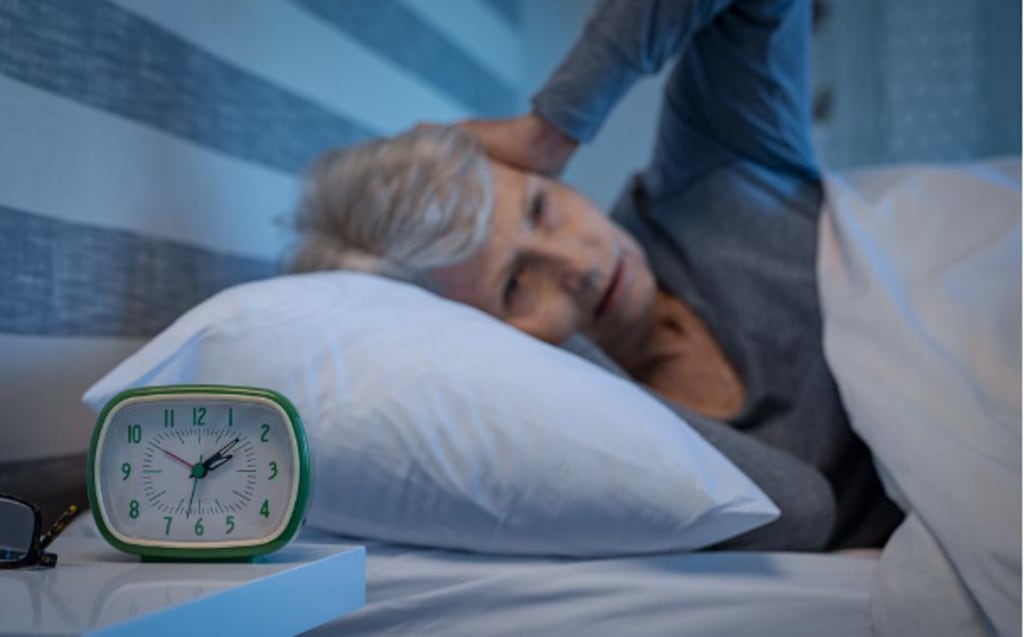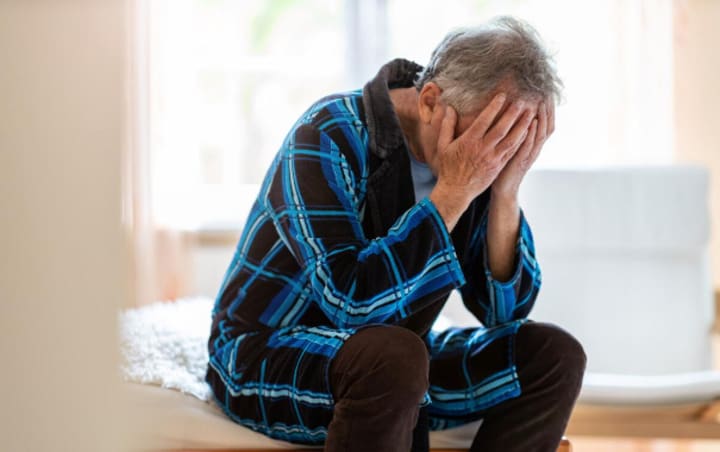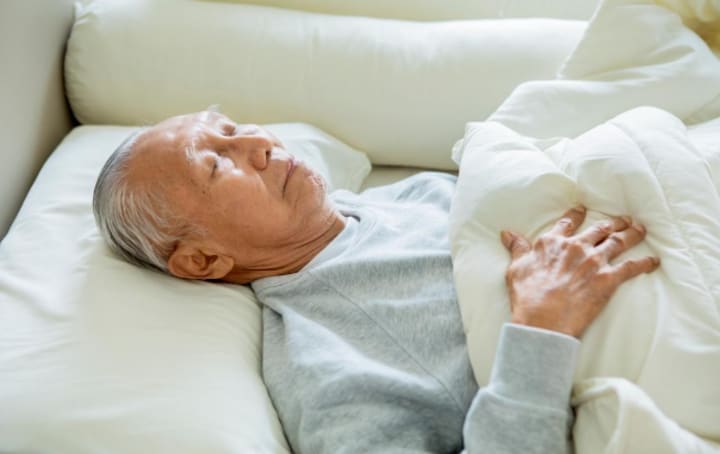
Many older people find that as they age, they have more and more sleep problems: some of them have difficulty falling asleep, and others may wake up at 3 or 4 a.m. and never sleep again; in some cases, it is clear that they have slept for a short time, but they still feel sleepy the next day.
These situations are not uncommon, epidemiological survey data show that in older people over 65 years old, more than 50% of the population have one or more sleep problems, and many age-related factors can affect the quality of sleep of older people, this science article today, to introduce the specific causes of those aging causes sleep disorders in older people.
As we age, 10 major problems can affect sleep
As we age, there is no single cause of sleep disorders, to summarize the common 10 important factors for you.
1. Changes in the sleep rhythm itself
As we get older, older people are more likely to go to sleep early at night and wake up earlier at night, a situation that is more in line with the natural rhythm of the body's sleep rhythm. If you do not want to let yourself go to sleep too early, you can do some soothing activities at night to relax your body, such as doing some soothing stretching exercises, taking a hot bath, or listening to some calm and soothing music.
2, pain
When people get old, they either have pain here or there. Arthritis, back pain, gastroesophageal reflux disease, diabetes, and several other age-related diseases can cause pain problems, and pain problems, in turn, are one of the major causes of sleep disruption. In some cases, physical therapy or pain medication can relieve pain and improve sleep.
3、Neurological diseases
Parkinson's disease, Alzheimer's disease, etc. may cause disorders in the brain and nervous system signals, which in turn affects sleep. In some cases, it is these neurological disorders that cause waking up during sleep or disrupt the quality of sleep, while in other cases, it may bring a sense of uneasiness due to neurological disorders, which affect the quality of sleep.
4、The influence of drugs
Cardiovascular disease, hypertension, Parkinson's disease, and thyroid disease are common diseases in the elderly, and very often for the control and treatment of these diseases, long-term medication is required, and many drugs may also have an impact on the sleep of the elderly. Therefore, when choosing a medication program, you should pay attention to the potential effects of sleep and try to choose drugs that have little impact on sleep.
5. Getting up at night
If you get up more than 2 times a night, the condition is called nocturia. Diabetes, heart failure, infections, inflammation, prostate enlargement, age-related bladder problems, etc., can all lead to an increase in the number of nocturnal episodes, which can affect sleep.
6、Menopause
When women enter menopause, the secretion of progesterone and estrogen in the body will be greatly reduced, which will lead to hot flashes, adrenaline secretion surge, sympathetic excitability, etc. These conditions will lead to night waking, if this happens many times a night, it will seriously affect sleep.
7、Sleep apnea
Do not think snoring is not a disease, sometimes the typical symptom of sleep apnea problem is snoring, which will repeatedly interrupt breathing, a night may even cause the emergence of hundreds of such cases, sleep apnea more than 40 years of age, and may therefore affect the quality of sleep, resulting in the next day still feel drowsy, obese people are at high risk of sleep apnea, must be Pay more attention.
8, restless legs syndrome
Restless leg syndrome will make you not want to move the legs still move, this disease will also make the skin produce a "needle-like" tingling feeling, not only the legs but arms may also be affected, if the arm occurs such a problem, is called periodic limb movement disorder, in the senior citizens over 80 years old, about 20% of the people suffer from restless legs syndrome, if this affects the sleep of friends, you can seek medical help to control the symptoms and improve sleep.
9, psychological problems

Older adults are at high risk for depression, bipolar disorder, and other clearing disorders, and these emotional-psychological problems, too, can have an impact on sleep. Therefore, should pay attention to their anxiety, depression, and other situational problems at some stage, if these problems have formed an impact on sleep, should also be actively adjusted to improve.
10, heart disease
Shortness of breath due to heart failure, chest pain due to angina, accelerated pulse due to atrial fibrillation: all these heart problems can interfere with sleep in the elderly. And in turn, lack of sleep can exacerbate these heart problems, thus creating a vicious cycle. For older adults with heart health problems, it is important to be proactive in managing disease risk, slowing disease progression, and minimizing the impact of disease on sleep.
4 Tips for Seniors to Improve Sleep
For these reasons, a good way to improve sleep quality in the elderly is through lifestyle changes or allopathic conditioning. In addition, the following 4 tips for sleep disorders in the elderly are worth considering.

The first is that for friends who often have anxiety affecting their sleep because of the many things they have to solve the next day, it is worth making a list of things to do and ideas to do the next day at night, which will make people's hearts more stable and help to maintain a good sleep that night.
Cell phones, tablets, and other electronic products, there are now many older friends use, if you do not want to sleep problems, it is recommended that in the evening or should try to put down the phone, the bright light of the electronic screen of the phone will affect the body's melatonin secretion, resulting in difficulty in falling asleep, if possible, before going to bed may wish to read a paper book, or quietly listen to some calm music, are good choices to help fall asleep.
Some friends think that some wine can help them sleep drinking alcohol sometimes can make people feel sleepy, and fast asleep, but the body in the process of digesting alcohol, will make people wake up many times during the night, can not complete deep sleep, may also interfere with breathing, the number of times you get up and other problems, therefore, drinking does not help sleep, and try not to drink at night and before bedtime, is the real guarantee of good sleep The right approach.
Caffeine is also a substance with neuroleptic effect and diuretic effects, in addition to coffee, strong tea, soda, chocolate some energy drinks, and over-the-counter painkillers contain this substance, caffeine will affect people's sleep, making it more difficult to fall asleep, but also affect the quality of sleep, some friends with the sensitive constitution, the intake of open pneumonia 6 to 8 hours before bedtime, will also affect sleep. Therefore, for friends with sleep problems, should try not to contact caffeine-containing beverages, drugs, etc. both in the afternoon and in the evening.






Comments
There are no comments for this story
Be the first to respond and start the conversation.